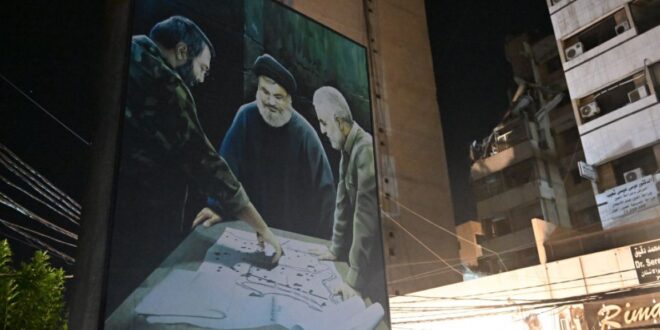Tensions escalate in the Middle East after an Israeli airstrike on Dahieh, targeting Hezbollah, kills civilians and brings about fears of broader conflict
The Israeli assassination of Hamas chief Ismail Haniyeh hours after targeting senior Hezbollah commander Fuad Shukr in Beirut caps a week of unprecedented escalation in the region that could very well bring it to an all-out war that drags in the United States.
It is too early to tell whether the escalation is linked to Israeli Prime Minister Benjamin Netanyahu’s controversial visit to the United States and the talks he had there with officials on both sides of the aisle, but the timing is curious.
In his speech to Congress on Wednesday, July 24, Netanyahu made several controversial claims, vowing to achieve “total victory” over Hamas and referred to a potential escalation with Lebanon. Then an opportunity presented itself when a rocket killed 12 Arab Druze children and teenagers in the Israeli-controlled Golan Heights.
Hezbollah denied involvement in the attack, but Israel held the group responsible and following Tuesday’s strike in Beirut, claimed Fuad Shukr was directly responsible without evidence.
The attack on Majdal Shams prompted Netanyahu to cut short his visit to Washington, and shortly after he arrived in Israel, Israel’s security cabinet convened for an emergency session Sunday evening, authorising Netanyahu and Defence Minister Yoav Gallant to determine the timing and nature of their response to the attack.
But Netanyahu was accused of cynically exploiting the attack to manufacture consent for an escalation against Israel’s enemies.
During the 1967 War, Israel captured the Golan Heights and annexed the territory in 1981. This annexation was not internationally recognised and deemed illegal. In 2019, under former President Donald Trump’s administration, the U.S. officially recognised Israeli sovereignty over the Golan Heights, a move widely viewed as a political favour to Israeli Prime Minister Benjamin Netanyahu during the 2019 legislative election. The Biden administration, which came into office in 2021, announced it would maintain this policy, despite it not being recognised internationally.
Hezbollah will not take a back seat
With Israel’s retaliation concluded, all eyes will now be on Hezbollah and the other factions in the Iranian-backed Axis of Resistance, who have vowed to respond to the deadly blow suffered in their ranks over the past 48 hours.
Sources close to Hezbollah told The New Arab that the militant group will not “let this aggression go unanswered,” suggesting that a retaliatory attack on Tel Aviv could be forthcoming.
They added that the militant group views the bombing of Dahieh as “Israeli aggression” rather than a response, noting that “Hezbollah was not involved in the Majdal Shams massacre, contrary to what Israeli media claims.”
The source also described the Dahieh bombing as a “significant escalation” that could “alter the balance of power.” However, they downplayed the likelihood of a full-scale war, suggesting instead an increase in “targeted strikes and assassinations.”
“Hezbollah is not seeking a full-scale war, but neither side entirely controls the escalation,” one source states. “Israel fears slipping into a full-blown conflict, aware that Hezbollah is well-prepared.
“On the other hand, Hezbollah is willing to engage in an all-out war if forced, viewing it as an opportunity to shift power dynamics and bolster domestic support despite current opposition.”
Hezbollah’s repeated declarations of readiness for war do not fully reflect its military capacity, the source stated, adding that the group has consistently stated that it has utilised only a fraction of its military, technical, and human resources.
Lebanese Journalist Abdullah Mulaeb says that Israel might use Hezbollah’s response to the bombing of Dahieh to escalate the situation, especially if it receives the necessary support from the United States.
“If Hezbollah’s response is severe, Israel could portray its actions as avenging the bloodshed to the Arab world, which largely opposes both conflict and Israel. At the same time, Israel might amplify its military efforts on the northern front,” he explains.
According to sources familiar with the discussions between U.S. envoy Amos Hochstein and Lebanese officials, the United States intended for Israeli strikes to be confined to Hezbollah’s military infrastructure and avoid civilian casualties.
Despite these intentions, the strikes resulted in the deaths of five civilians, including two children, Hezbollah official Fuad Shukr and an Iranian official.
Lebanese citizen and resident of Beirut Rami Ahmed expresses growing concern over the growing Israeli threats, which are creating an atmosphere of “tension and instability” in the capital, as he said.
Ahmed, like many Lebanese residents, hopes the conflict can be resolved peacefully through negotiations rather than military actions that could lead to further escalation into a full-fledged regional war.
“I hope Hezbollah’s response is balanced and not provocative enough to lead to full-scale escalation. They should coordinate closely with the Lebanese government and official security forces to ensure that any actions taken are part of a unified national plan aimed at protecting all of Lebanon,” he said.
 Eurasia Press & News
Eurasia Press & News




